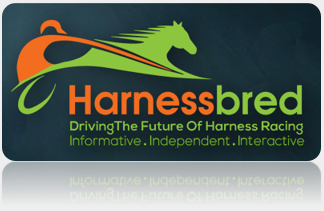A Special Meeting of Harness Racing Australia (HRA) Members was conducted following the 2019 Annual General Meeting in Hobart on Friday 8th November 2019. The purpose of the Special Meeting was to review the industry’s equine health and welfare initiatives.
HRA has a clear focus on improving the health and welfare of all Standardbreds, and whilst succeeding in a number of areas, remains committed to continuous improvement which enriches their quality of life.
HRA believe “there is no finish line” regarding the industry’s commitment to equine health and welfare, and this belief is enshrined in the HRA Horse Welfare Statement (http://www.harness.org.au/hra/hra-equine-welfare.pdf) and HRA Equine Health & Welfare Code of Conduct (http://www.harness.org.au/hra/hra-equine-welfare-code-of-conduct.pdf)
Significant progress has been made in recent years to secure the welfare of horses before, during and after their racing careers with some examples being:
- establishment of a highly skilled and experienced welfare reference committee, the Standardbred Welfare Advisory Group (SWAG);
- employment of an Equine Health and Welfare Coordinator;
- implemented continuous rule restriction and moderation on the use of the whip;
- introduced rules controlling the use of tongue ties;
- continuing to lead the world in developing and enforcing the regulation of prohibited substances (global benchmarking statistics available here: http://www.wtc2019.se/news/global-welfare-integrity-stats-2018/);
- making the sport safer for the horses, illustrated via ongoing analysis of raceday injury and incidents statistics measured across 2,763,953 starters competing at 37,191 race meetings, which have been reduced to:
- injuries to 0.27% – equivalent to less than 3 injuries in 1,000 starts
- euthanasia rate of 0.002% – equivalent to 2 deaths out of 100,000 starters
- introduced microchipping for identification and traceability (2017);
- developed an internationally acclaimed website, www.thereisnofinishline.com.au, to provide the public with transparent information on industry standards, statistics and performance relating to equine health and welfare, as well as integrity functions;
- implemented rules enforcing the formal deregistration of a horse from either racing or breeding activities, rules requiring notification of a horse’s post racing activities and rules requiring notification of a horse’s death rules; and,
- continued investment in successful retraining, rehoming and life after racing activities.
The Special Meeting determined:
1. National traceability database
Continued endorsement for HRA’s current policy position to support the introduction of a National Horse Traceability Database as per the HRA submission to the RRAT Senate Enquiry into Feasibility of a National Horse Traceability Register in September 2019 . This includes providing database solutions should such a Register become a reality.
A National Register will ensure the traceability of horses and the responsible horse owner(s) beyond the current rules whereby HRA records the post retirement owner and destination details.
To both promote the relevant rules and enhance the quality of available data, HRA have instituted an immediate blanket call out to the industry and 30-day amnesty to encourage retrospective horse deregistration’s prior to the enforcement of even stronger penalties for noncompliance which currently exist.
HRA will also automate contact with horse owners for all horses deemed ‘inactive’ (not raced or bred with for 2 years or more) within the database, thus improving reporting capabilities.
2. Audit of existing industry processes and data
It was agreed that HRA engage an experienced independent consultant to review all current State and National policies and procedures, including the robustness of data input and data analysis regarding horse traceability within the harness racing industry.
3. Post Racing Activities
The guiding principle for the industry is to ensure that the quality of life of Standardbred horses is preserved at each stage of its life.
While acknowledging that the sports federated model makes it difficult to achieve a national uniform solution, it remains critically important for all State Controlling Bodies (SCB’s) to continue to prioritise and enhance retraining, rehoming and life after racing opportunities for as many Standardbreds as possible.
For its part, HRA will continue to assist in the development of these opportunities as well as benchmarking the outcomes achieved by these efforts, including public reporting via www.thereisnofinishline.com.au.
4. Collaboration on Standards for Transport and Destruction
Recent media reports highlight a number of deficiencies and a lack of oversight over slaughter processes at government-controlled knackeries and abattoirs.
While every effort will continue to be made to preserve the quality of life of Standardbreds, it is an unfortunate reality that for a variety of reasons, this is not possible or practical for all horse’s.
To better protect the welfare and dignity of all horses, and to ensure humane processes and controls are in place, it was agreed that HRA collaborate with other national equine peak bodies (RA, EA and the AHIC), Governments and relevant regulatory authorities to identify and bring about changes in laws and regulations for urgent reform.
5. Gear & Equipment
HRA has been tasked with undertaking a comprehensive review of the approved gear and equipment used within industry. HRA’s expert welfare reference committee, SWAG, has been tasked with the identification of equipment that will in turn be subject to industry consultation regarding its relevance, efficacy and or alternatives which could be used to replace them.
HRA will continue to monitor the adherence, and enforcement, of the current rules surrounding the use of the whip – which are already some of the most stringent globally.
The meeting also acknowledged that as an industry, we are not perfect, nor is our work complete, however our achievements are real and significant for our horses and we must continue on our pathway to continually improved equine health and welfare outcomes for all Standardbreds.
Chief Executive
Andrew Kelly
Approved By Dean Baring www.harnessbred.com
Driving The Future Of Harness Racing

